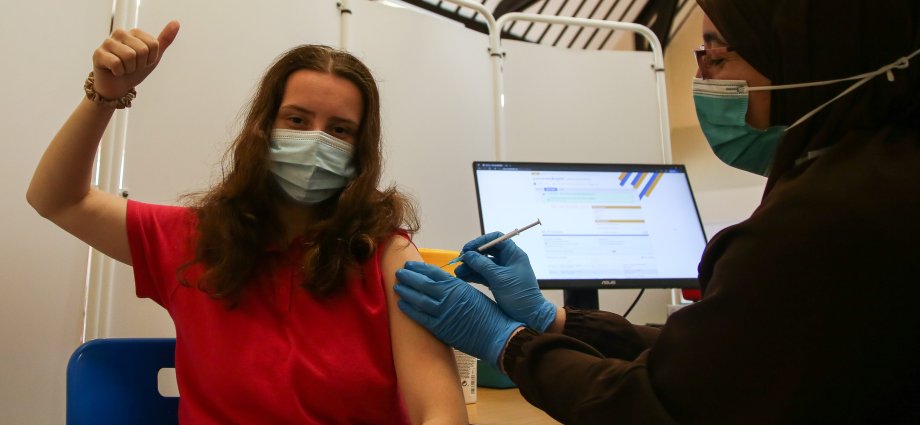TIME and time again throughout this pandemic the UK has been at the forefront of bringing forward innovations in science and medicine to help tackle the virus.
It’s clear to see the massive impact of the vaccine programme, as well as older medicines such as dexamethasone, which was the first treatment to be used to help reduce deaths from COVID-19 in patients sent to hospital.

Covid booster jabs are important to get us through winter as safely as possible[/caption]
And now we hope that very soon we will begin to have further treatment options thanks to the deals struck to secure two new antiviral treatments.
Antivirals are mainly used to treat those who are infected with a virus; in time they may also be able to be used to protect those who’ve been exposed to the virus, but before they become infected.
These drugs target the virus at an early stage, stop it multiplying in the body, and prevent progression to more severe, or even critical, symptoms.
The work to bring about these deals has been vital. If approved by our independent regulator – the MHRA (Medicines and Healthcare products Regulatory Agency) – the new treatments will be able to protect the most vulnerable in our society, particularly those who for no fault of their own can’t respond as well to vaccines.
But these drugs should not be seen as a magic bullet. They’ll need to be used carefully because we don’t have a bottomless supply. And, they’ll need to be given early soon after a patient tests positive for COVID-19.
HOSPITALISATION SLASHED
The data we have so far show the first of these drugs, made by MSD, can be used to treat patients in the community and halve the chances of hospital admission.
The study was started many months ago in patients who had not had the vaccine. What we don’t know yet is if we’ll see the same benefit in vaccinated patients and we will have to do a large national study to work that out as the next step.
While we wait for approval from the MHRA, we need to ensure we continue to do all we can right now to help maintain the protection COVID-19 vaccines have given to so many.
Due to the colder months making it more favourable for transmission, and the expected rise in indoor mixing, this year has the potential to see what could be a significant flu surge coinciding with rising cases of COVID-19.
With fewer people getting flu last year due to the necessary restrictions in place – this also means we do not have as much natural immunity this year in our communities.
FLU SEASON
We know too well how serious both flu and COVID-19 are – they are spread easily from person to person, can leave people needing hospital treatment and can be fatal, especially if people get both viruses at the same time.
Therefore, I continue to urge all of those eligible to a COVID-19 booster jab once invited – as well as asking all those who are eligible to get the flu vaccine this season – so you can protect yourselves and your loved ones.
Boosters are really important to get as many of us through the winter as safely as possible – It’s a very encouraging start to see that more than 4 million people have had their booster or third jab already.
The work will continue to carry on securing new treatments to protect as many as possible from COVID-19, but getting vaccinated remains absolutely the best thing you can do right now to protect yourself, your family and those around you.

Professor Jonathan Van-Tam is the Deputy Chief Medical Officer for England[/caption]











